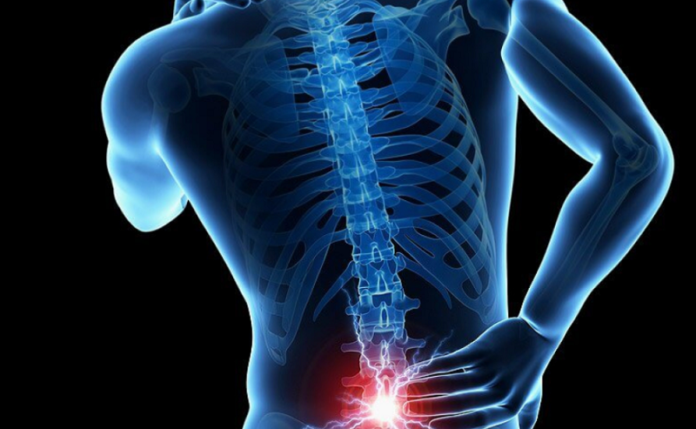gw2 adrenal health It’s an unfortunate fact that many players don’t get enough sleep.
You may not know it, but your adrenal health is actually linked to your sleep habits! Here are some things you need to know about GW2 adrenals and how they can affect you.
Basically, the two glands that produce adrenaline and cortisol — often referred to as the “stress” or “fight-or-flight” hormones — are called the anterior and posterior pituitary glands.
These sit right above the hypothalamus in the brain and, when stimulated by a variety of factors, release adrenaline and cortisol into your bloodstream.
Adrenaline and cortisol are the hormones that give you energy in stressful situations. They also help control your heart rate and how much glucose (or “blood sugar”) is stored in your body.
But these hormones usually come with side effects: pre-eclampsia, heightened blood pressure, poor sleep, and an increased risk of diabetes (to name a few).
Elevated levels of stress hormones can also make it harder for you to lose weight! So it’s important to keep your adrenal health under control — especially if you’re spending long hours gaming.
Points about adrenal health :
1. Excess cortisol can damage your bones .
It breaks down the collagen in bones, making them weaker and more susceptible to fractures. This is most apparent in elderly people with osteopenia or osteoporosis.
2. Excess adrenaline damages the heart .
It can cause palpitations, rapid heartbeat, racing heart, high blood pressure, and low blood pressure/shock!
When your cortisol levels are too high or when you go without sleep for 24 hours or more, your adrenals produce excessive amounts of adrenaline.
But if you are drinking caffeine drinks before bed (like energy drinks) this affects how much cortisol is making it through the kidneys.
3. Sleep deprivation can lead to weight gain .
Just one night of bad sleep will leave you craving high-fat, high-carb foods. Why?
When you’re tired, your blood sugar drops. So it makes sense to eat something that will give you a quick energy boost — like a donut, bagel, or sugary cereal — which all raise blood sugar and trigger an insulin response.
Insulin is a storage hormone that tells your body to hang on to fat and protein you’ve already eaten! And if that food contains simple carbohydrates and no protein (like those mentioned above), you’ll also get an insulin spike.
Insulin is also a “fat-storing” hormone because it tells all your body’s cells to store away and hold onto extra energy, so you’ll have enough fuel to keep going.
This can leave you feeling tired and sluggish — and give you the munchies — several hours after eating!
That’s why we tell people:
· If you eat carbs, choose healthier ones — like vegetables, fruits, whole grains, legumes, nuts. · Snack on the right things — the best snacks contain protein as well as complex carbohydrates (like nuts). ·
Eat at least three meals each day. Studies have shown that people who eat breakfast tend to eat less later, while those who skip breakfast are more likely to overeat. ·
Eat real food — cook your own meals at home, or stick with energy bars, shakes, and fruit. Choosing convenience foods doesn’t give your body the nutrition it needs for optimal health!
4. Stress hurts your adrenal glands .
We’ve already listed some of the negative effects of cortisol on your body (see #1).
But there’s more! Some research also shows that stress suppresses our immune system, which means we can get sick more easily if we’re exposed to a virus or bacteria.
This is one reason why people who are stressed out have more colds, flu, and infections. And if you’re not sleeping enough or exercising enough, your stress levels can also disrupt hormone levels in your adrenal glands.
This can lead to fatigue and other symptoms like muscle weakness and trouble sleeping.
5. Some illnesses can cause or worsen adrenal issues .
Some cancers (like breast cancer) and autoimmune diseases (such as rheumatoid arthritis) can lead to bone weakening because of excessive cortisol production.
Cancer patients who take medications that increase their cortisol levels may be at higher risk for osteoporosis after they stop taking the drugs because their cortisol levels drop too low.
6. You can lower your cortisol levels naturally .
If you want to take control of your stress and adrenal health, try some of these tips:
· Eat a balanced diet — and get enough nutrients like vitamins A, B6, and C, which help the adrenals work better. ·
Exercise — even if it’s just a short walk around the block — for at least 30 minutes a day (can be broken up into three 10-minute intervals).
And get plenty of sunlight exposure (the body makes vitamin D from sunlight exposure). · Cut back on sugar and caffeine — studies show that even half a cup of coffee can raise cortisol levels by 25%.




